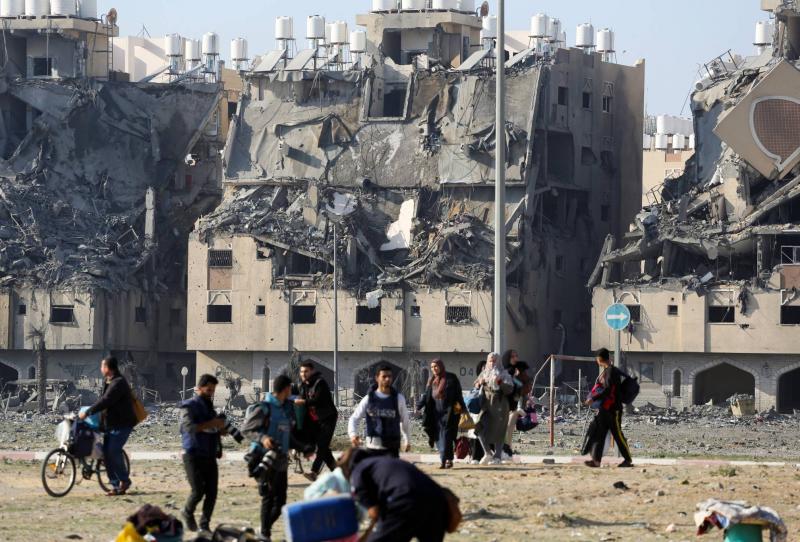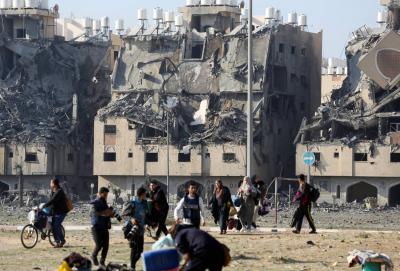As Israeli bombs target the Gaza Strip, residents find themselves crowded along the border with Egypt's Sinai Peninsula in the city of Rafah, stating that they have no place left to flee. Hundreds of thousands have been displaced from their homes, but with the bombing approaching again, many fear that the only option left to survive is to move to Sinai. However, they do not want that, saying if they were to move to Sinai, they might never return.
Umm Osama (55), originally from northern Gaza but now living in Rafah, expressed her fears, saying, "I am afraid that the military operation will reach Rafah." She added, "After Rafah, where do we go?" Umm Osama and many displaced Gaza residents reject the idea of fleeing across the border if circumstances allow it. They fear being displaced similar to their ancestors, as many residents of Gaza descend from Palestinians who were forced to flee their homes after the establishment of the State of Israel in 1948.
Umm Imad (73), who also lives in Rafah, stated, "If I were given a choice between bombing or displacement, I would choose to remain steadfast in my home...". In the face of ongoing Israeli airstrikes for weeks and nearby tank fire, alongside ground troops reportedly targeting fighters of the Hamas movement, around 85% of the 2.3 million Palestinians living in Gaza have been forced to move south to the besieged area.
Israel has urged Gaza residents to head south to avoid being caught in the crossfire of strikes against Hamas. However, the Israeli army is also bombing the southern areas where residents have fled. Rafah holds strategic significance because it contains the only functioning crossing in Gaza that is currently delivering aid and is not controlled by Israel. Yet, the city has recently come under intense bombardment.
"There is no safe area," said Jihad Al-Eid, a local resident, as strikes targeted the Al-Shaboura district in Rafah, destroying an entire street late Thursday night. Today, men and boys were seen digging through the rubble, searching demolished homes for belongings they could not salvage. The strikes left behind piles of debris and iron scattered with sheets, bags, mattresses, sofas, children's bicycles, and kitchen utensils.
The ongoing war between Israel and Hamas is the deadliest ever in Gaza. Palestinian officials report that Israeli attacks have killed around 19,000 people, mostly women and children. Palestinians and officials in Arab countries are concerned about the potential for a long-term mass displacement of Gaza's residents. It is currently unlikely that there will be a mass exodus into Egypt.
The process of residents leaving Gaza is slow, as the congested border crossing faces difficulties in allowing aid trucks to enter, which the United Nations states are insufficient to meet the needs of residents suffering from a lack of medical supplies for weeks and beginning to fall into hunger. Violence continues to claim lives in the southern sector.
At Nasser Hospital in Khan Younis, a father mourned his two sons, aged 17 and 18, who he said were killed in an Israeli strike yesterday. The father followed their bodies until they were wrapped in shrouds and sent to the morgue.




